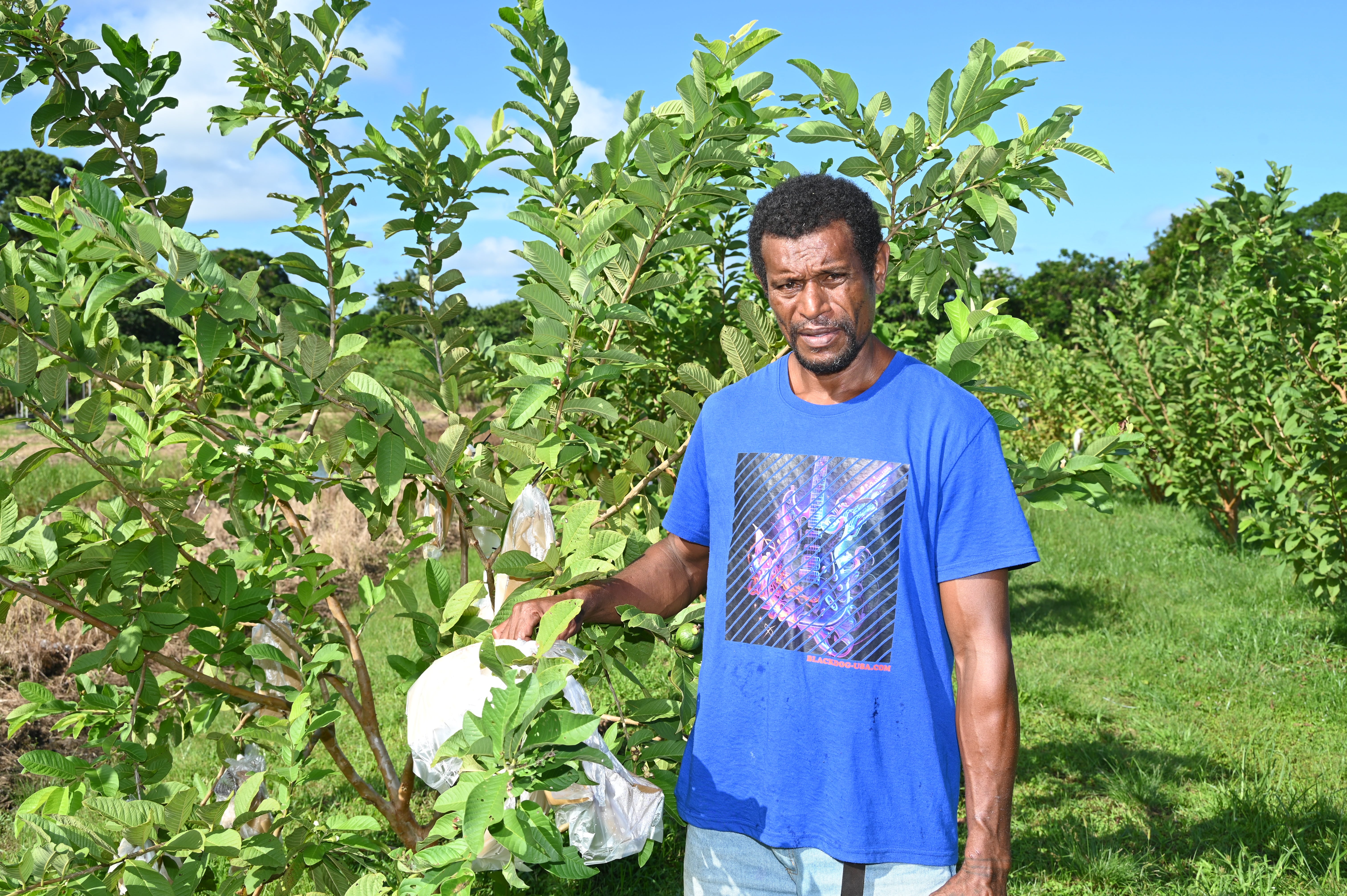RELENTLESS PURSUIT OF FARMING SUCCESS

Deep in Noco, Rewa, where the land offers both abundance and challenge, Joseva Tuisolo stood on his farm, gazing at the soil that had once turned against him but is now sustaining him.
The tides had risen, creeping
into the fields and overtaking his crops. The unforgiving land, shaped by
saltwater intrusion and poor drainage, had turned months of labor into an
uncertain battle.
He had poured his efforts into
taro, planting ten thousand seedlings with hope, only to watch all but a
fraction fade into the depths of the water.
Melons, meant to bring stability,
instead turned to waste. Ginger, provided by the Ministry of Agriculture as
part of its assistance to farmers, faced challenges in establishing itself in the
unique soil conditions of Noco but each failure carved itself into his resolve.
"Every time something
failed, I asked myself, what now?" Joseva recalls, his voice carrying the
weight of seasons spent battling the land.
"I could have walked away.
But this land is home. It’s part of me."
So he stayed, listened, and
studied the rhythm of the soil, the way water shaped the ground, and how the
seasons whispered clues about what could survive there. He stopped trying to
force the land to comply.
Instead, he asked himself, what
does the land want to grow?
That was when everything changed.
Taro had failed. Melons had
failed. Ginger had failed. But deep in the soil, where stubborn roots refused
to let go, Green Pearl guava flourished.
Where other crops drowned, dragon
fruit climbed upward, defying gravity. Where the floods stole everything else, Duruka
stood strong.
For the first time, the land
wasn’t resisting him; it was responding.
"It felt like the land
finally spoke back," he smiled.
His first dragon fruit harvest
arrived, vibrant and full of promise. He took it to the Suva market, his
confidence wavering. Would people even care about this unfamiliar fruit?
"I thought no one would buy
it. But even the kids—they cried for it and that was the confirmation I needed.”
Every Friday, his farm now yields
guava, bringing steady income. His dragon fruit sells out within hours. His
duruka thrives, bearing fruit multiple times a year.
Yet, more than profits, Joseva
sees something greater unfolding—a future for those who doubt that farming
could ever sustain them.
"The land gives us
everything we need. It took me years to understand that. This soil is still
here even when jobs disappear and life feels uncertain. It will provide if we
let it."
Through quiet persistence, Joseva
did not just cultivate crops. He cultivated hope for himself, for his
community, for every farmer standing at the edge of doubt, wondering if their
land is worth the fight.
“To the farmers of Rewa, this
land can still provide; it may not give us everything, but it will give us
something. The key is choosing crops that can withstand the soil's rhythm—the
salt-intruded fields and the rising tides,” he said.
“Dragon fruit flourishes here,
guava bears steady fruit, and duruka stands unshaken. These are the crops that
fight alongside us, that refuse to be washed away,” he said with a smile.
“So I urge you, don’t give up on
your land, it has its wisdom, work with it, not against it. When we stop
fighting the soil and start understanding it, we will see that the future of farming
in Rewa is still alive."
The Ministry of Agriculture and
Waterways has also recognized the challenges in Rewa’s flood-prone farmlands,
working on solutions such as salt-tolerant crops and drainage improvements.
Joseva Tuisolo walks his land
with a quiet certainty. It is no longer a battle—it is an understanding. The
soil may challenge him, but it will also sustain him.
His journey is not just about
farming, it is about listening, adapting and trusting that even in adversity the
land holds answers.
He hopes his story will spark an interest amongst youths in the province that feel uncertain about farming for a living.
ENDS
